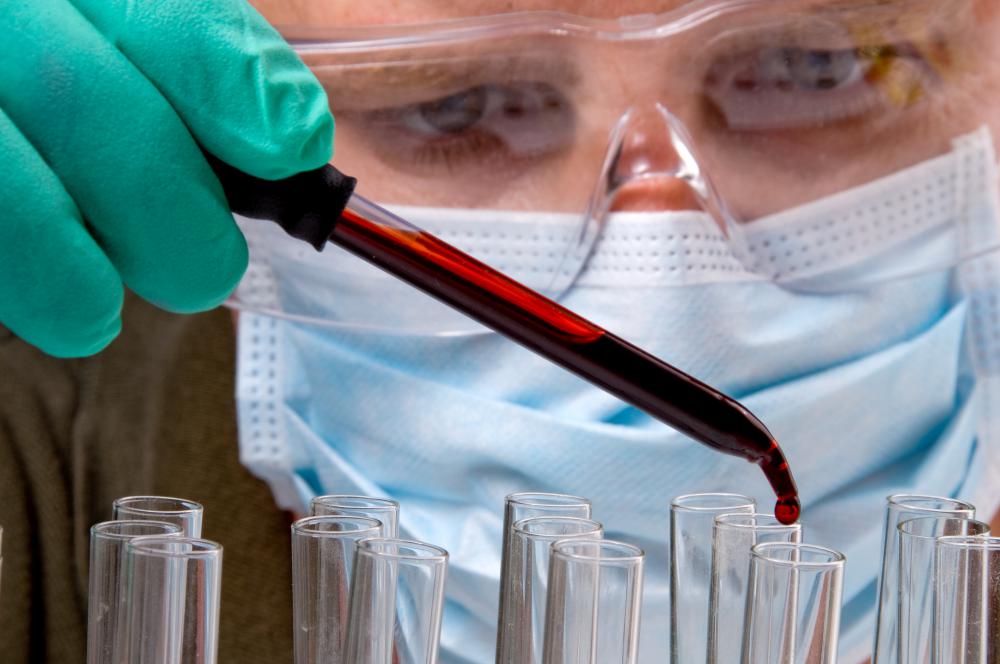At WiseGEEK, we're committed to delivering accurate, trustworthy information. Our expert-authored content is rigorously fact-checked and sourced from credible authorities. Discover how we uphold the highest standards in providing you with reliable knowledge.
What is Forensic Pathology?
Forensic pathology is a branch of the field of pathology which applies the principles of pathology to the legal profession. Forensic pathologists specialize in examining bodies and evidence such as body fluids and tissue samples for the purpose of gathering information which can be used in criminal investigation and court trials. They are sometimes known as medical examiners, coroners, or simply pathologists, depending on the region where they work.
Some people think that the term “forensics” refers to forensic pathology, which generates considerable confusion when forensic accountants, forensic document examiners, forensic psychiatrists, and other forensics professionals are discussed. “Forensic” actually comes from the Latin forum, and it means “pertaining to a trial.” The field of forensics was developed in the 1800s, when people began applying scientific methods to criminal investigation and legal trials.

The field of pathology in general is focused on the study of disease and its processes. A specialist in forensic pathology has training in this field, with additional skills which can be applied to the legal field. For example, he or she can examine a body to determine the cause of death, but the pathologist can also look for other clues and information, such as defensive marks on the hands which might indicate that the victim fought back while being attacked.

Forensic pathology can involve the study of bodies, a process known as autopsy, or analysis of samples taken at crime scenes or from the body. In cases where a complete body is not available for examination, the forensic pathologist can gather information from the available materials which can be used in investigation and eventual prosecution. They can also examine samples of tissue and body fluids to look for toxins and signs which can provide additional clues into the nature of the death, such as evidence that someone was suffocated and then submerged to make the death look like a drowning.

In addition to being knowledgeable about human anatomy and pathology, a forensic pathologist needs some additional skills. He or she must be able to collect evidence properly and to maintain the chain of custody, ensuring that the evidence is not compromised. It may also be necessary for forensic pathologists to testify on the witness stand in some cases, and in some instances, a specialist in forensic pathology may be retained by the defense for the purpose of refuting claims made by the specialist who works for the government or the prosecution.
AS FEATURED ON:
AS FEATURED ON:














Discussion Comments
Bhutan- One of the best forensic pathology programs is at the University of Texas Medical School. They offer a one year fellowship in which the students perform close to 350 autopsies in that year.
They also prepare toxicology reports and provide expert witness testimony in criminal trials. They usually perform autopsies on people that have died mysteriously or prematurely where the death may be suspicious.
Most medical schools offer a forensic pathology education tract, so it is best to find the most affordable training, since all programs teach the same thing.
For the fellowship, it is best to work with a medical facility within a medical school because you will have more interaction with the staff and that could be invaluable.
A forensic pathology career can be rewarding one. You help put criminals away and give closure to family members are grieving.
In order to obtain forensic pathology jobs you would have to go to medical school, complete your residency, and then obtain a fellowship for a period of about one to two years in order to be eligible to take your medical board exam.
Upon passing your medical board exam, you would be able to enter the field of forensic science pathology as a medical examiner and be able to perform a forensic pathology autopsy and give expert testimony regarding your findings.
The salary for a forensic pathologist varies but it is usually about $175,000 or more for medical examiners in larger cities. Lower salaries are offered for government work and smaller cities.
The forensic pathology education is a long one.
Post your comments